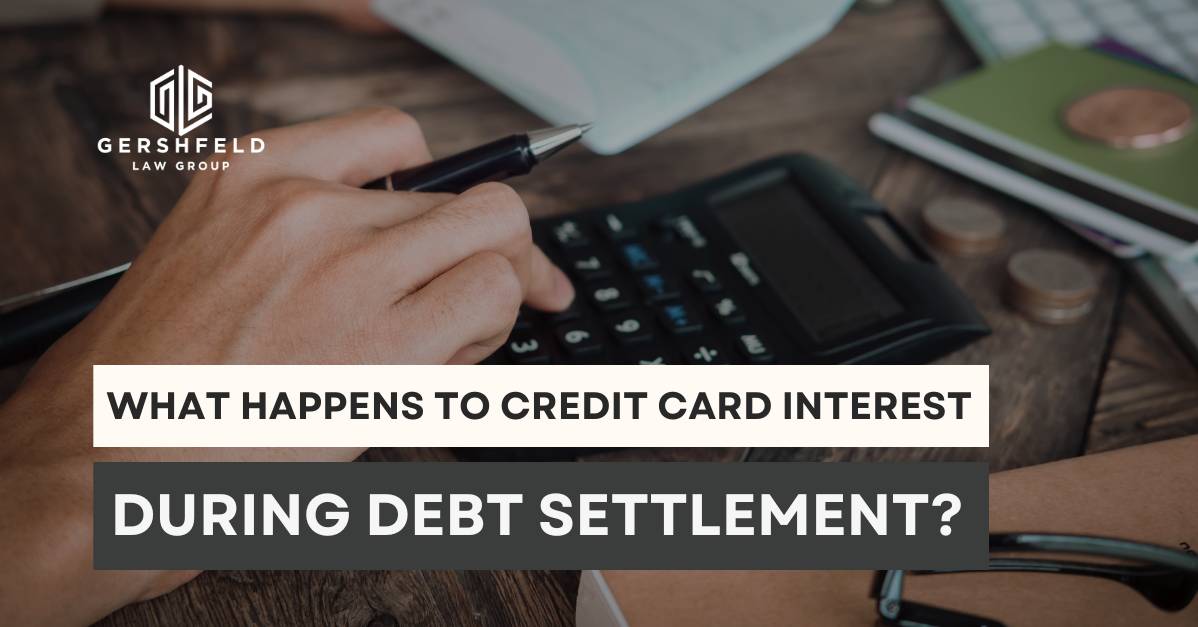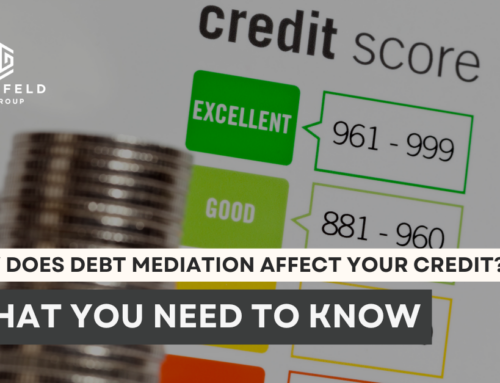Credit card interest is one of the fastest ways to turn a manageable balance into a crushing burden. One month you owe $5,000. A few months later, that number has ballooned to $6,500—and you haven’t even used the card again. That’s the hidden power of interest, and it’s exactly why debt settlement can be a game-changer.
So, what happens to credit card interest during debt settlement? And how can you stop it from piling up even further?
At Gershfeld Law Group, we know how fast interest can spiral out of control—and more importantly, how to help stop it. Let’s break it down.
The Problem: Compound Interest Keeps You Trapped
Most credit cards come with double-digit interest rates. The national average APR is hovering above 22%—and if you’re making minimum payments, the bulk of what you’re paying goes toward interest, not your actual balance.
Every billing cycle, interest is calculated on your unpaid balance—and then on the interest that was added the month before. That’s called compound interest, and it’s one of the biggest traps in modern personal finance. It rewards the bank and punishes the consumer.
This means the longer you carry a balance, the more you owe—even if you stop using the card entirely.
The Turning Point: What Happens When You Enter Debt Settlement?
Here’s where things shift.
Once you begin the debt settlement process—especially with legal representation—interest typically stops accumulating on the original balance being negotiated. That’s because you (or your attorney) are now actively working with creditors to reach a resolution.
While every case is different and not all creditors respond the same way, settlement often includes:
- Freezing interest while the negotiation is ongoing
- Reducing or waiving interest entirely as part of the settlement deal
- Agreeing to a lump-sum payment or structured plan that cancels out the interest you were being charged
In short: debt settlement can stop the bleeding.
What Most People Don’t Realize
If you’re behind on payments, credit card companies already know they might not get the full amount. That’s why many are willing to negotiate a lower payoff—because collecting something is better than nothing.
When Gershfeld Law Group steps in, creditors understand they’re dealing with professionals. We communicate firmly and legally on your behalf, pushing for outcomes that work in your favor—not theirs.
And yes, that includes stopping or reducing the interest that’s been eating away at your finances.
Does Interest Stop During Settlement Automatically?
No—but it can with the right approach.
Some creditors might continue to add interest until a deal is reached. Others will agree to stop it once they know a formal settlement is being negotiated. That’s why it’s important to act fast—and to work with a team that understands how to get results.
Every month you wait is a month of additional interest added to your balance. Time is money, especially when you’re being charged for borrowing it.
How Gershfeld Law Group Helps
We don’t just negotiate numbers—we help rebuild lives. Our legal team works with you to:
- Assess your full debt picture
- Communicate directly with creditors and collection agencies
- Push for settlements that include interest forgiveness or reduction
- Protect you from lawsuits, wage garnishments, and harassing calls
- Help you move forward with a clean financial slate
You don’t need to figure this out alone. You need a legal strategy that actually works.
Stop the Interest. Start the Recovery.
Credit card debt is hard enough. Watching the interest pile up just adds insult to injury. If you’ve been wondering whether you’ll ever escape the cycle, here’s your answer: you can.
With debt settlement—and a trusted legal team on your side—you can stop interest from taking over and finally make progress toward financial freedom.
Talk to Gershfeld Law Group today and find out how much you can save by acting now.









